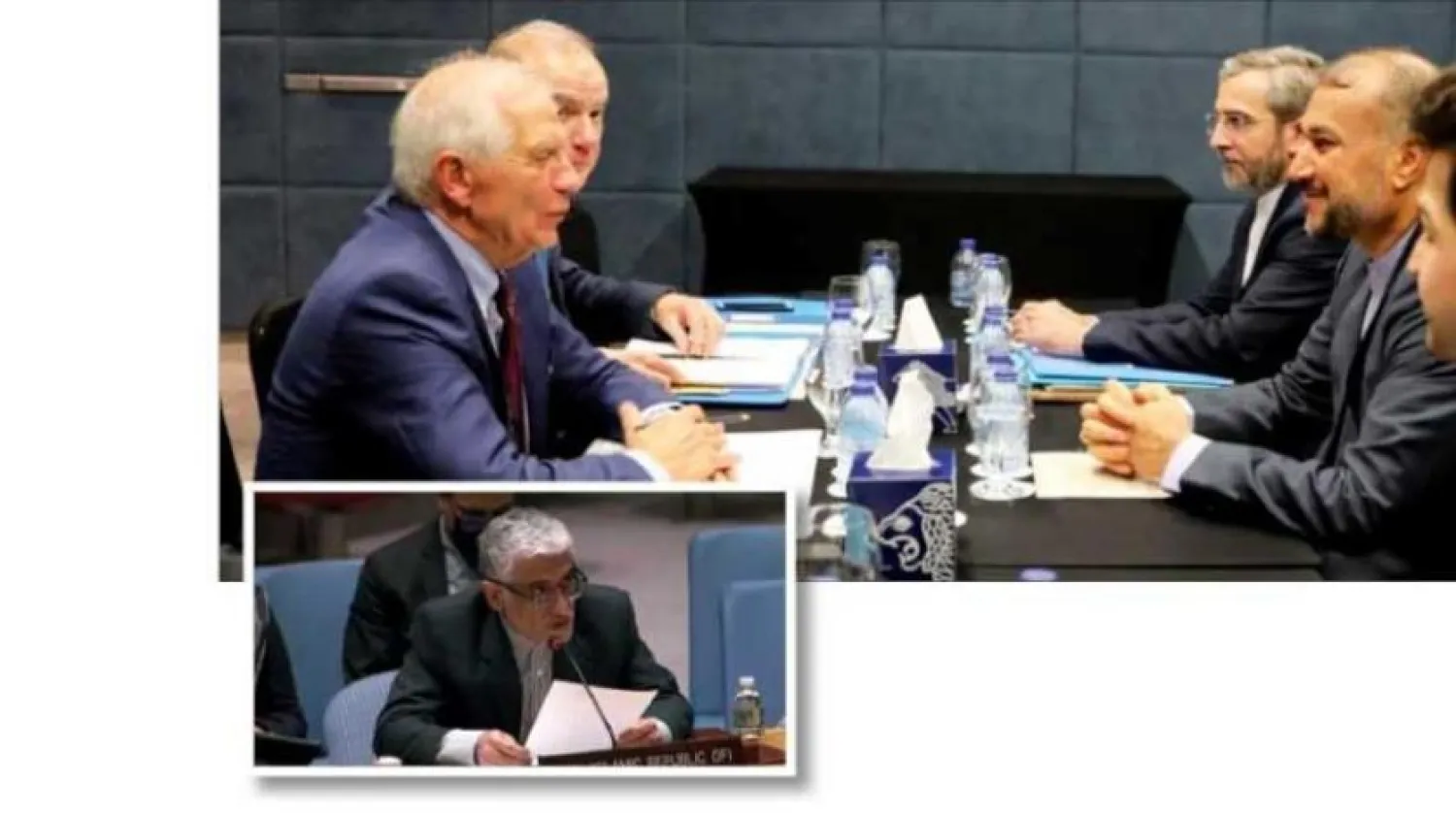High Representative of the European Union for Foreign Affairs and Security Policy Josep Borrell held talks on Tuesday with Iran's Foreign Minister Hossein Amir-Abdollahian ahead of the Baghdad Conference for Cooperation and Partnership in Amman, Jordan.
Iran’s top negotiator in the nuclear talks, Ali Bagheri Kani, and the bloc’s coordinator, Enrique Mora, were also present.
Borrell said in a tweet following the meeting that the EU and Iran agreed on the importance of keeping communication open and restore the Joint Comprehensive Plan of Action (JCPOA) based on the Vienna negotiations, referring to talks which have been stalled since September.
He said it was a “necessary meeting amidst deteriorating Iran-EU relations.”
The EU foreign policy chief further stressed the need to “immediately stop military support to Russia and internal repression in Iran.”
Separately, a delegation from the UN International Atomic Energy Agency arrived in Tehran on Sunday and left on Monday.
There is a realistic hope that the remaining differences with the UN nuclear watchdog will be clarified and resolved in Tehran, said spokesman for the Atomic Energy Organization of Iran (AEOI) Behrouz Kamalvandi.
The IAEA has for months been calling on Iran to explain the presence of nuclear material at three undeclared sites.
The issue has been an obstacle to progress in wider talks to revive the 2015 Iran nuclear deal with major powers to curb its disputed uranium enrichment program in return for lifting sanctions imposed by Washington after exiting the pact in 2018.
Tehran has denied all accusations in this regard, claiming that its nuclear projects are peaceful and that the country is not pursuing a secret weapons program.
According to observers in Tehran, the nuclear negotiations between Iran and the West are at an impasse, dpa reported.
Even if a technical agreement were to be reached with the IAEA, there would be no breakthrough in the nuclear dispute.
The reason for this is the brutal repression of anti-regime protests, which has been condemned in the strongest terms in the West and has also led to new sanctions being imposed on Tehran.
After the United States unilaterally pulled out of the nuclear agreement with Iran in 2018, Tehran began to break the restrictions agreed in the deal and make IAEA inspections more difficult.
Currently, Iran is enriching uranium to a purity level of 60%.
According to IAEA data, this is not significantly below the 90% needed for nuclear weapons.
Iran claims that it is technically capable of enriching uranium to a purity of 90%.
According to the 2015 Vienna nuclear deal, Iran is not allowed to enrich its uranium above 4%.









